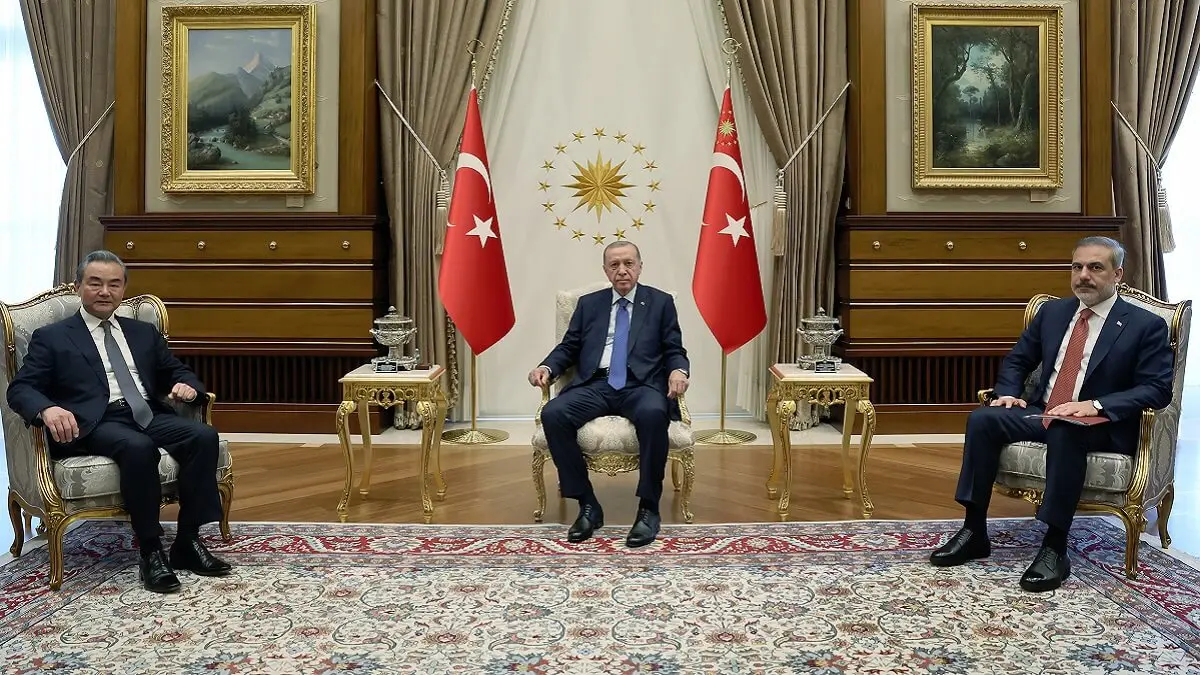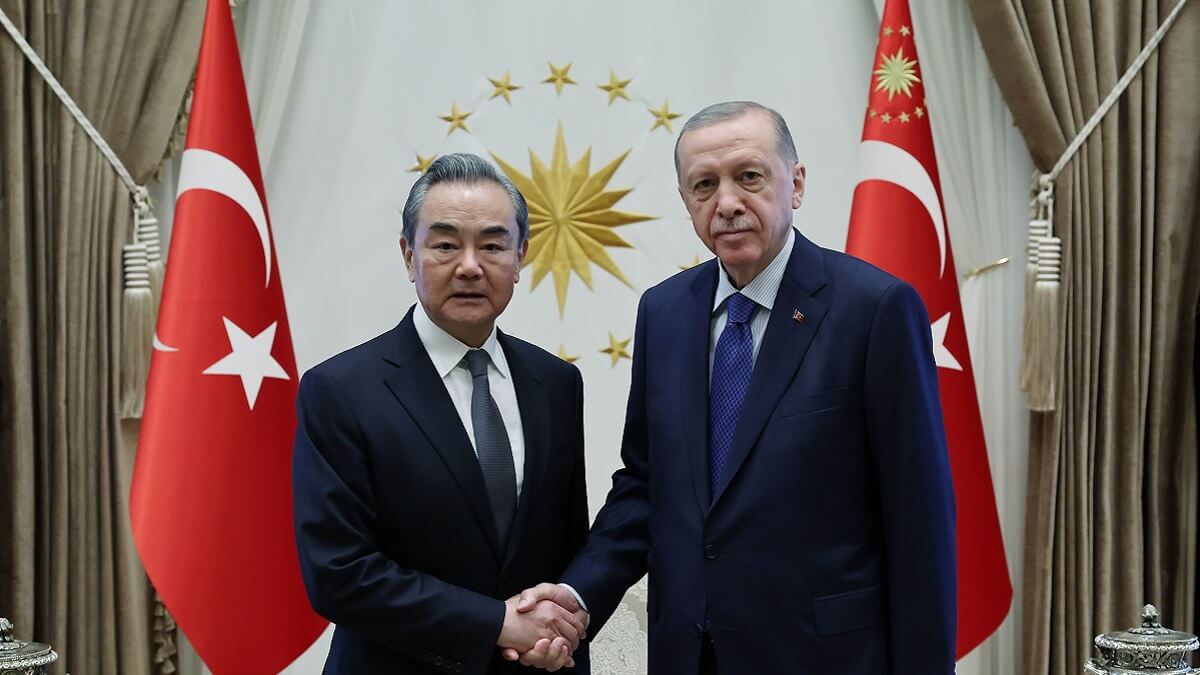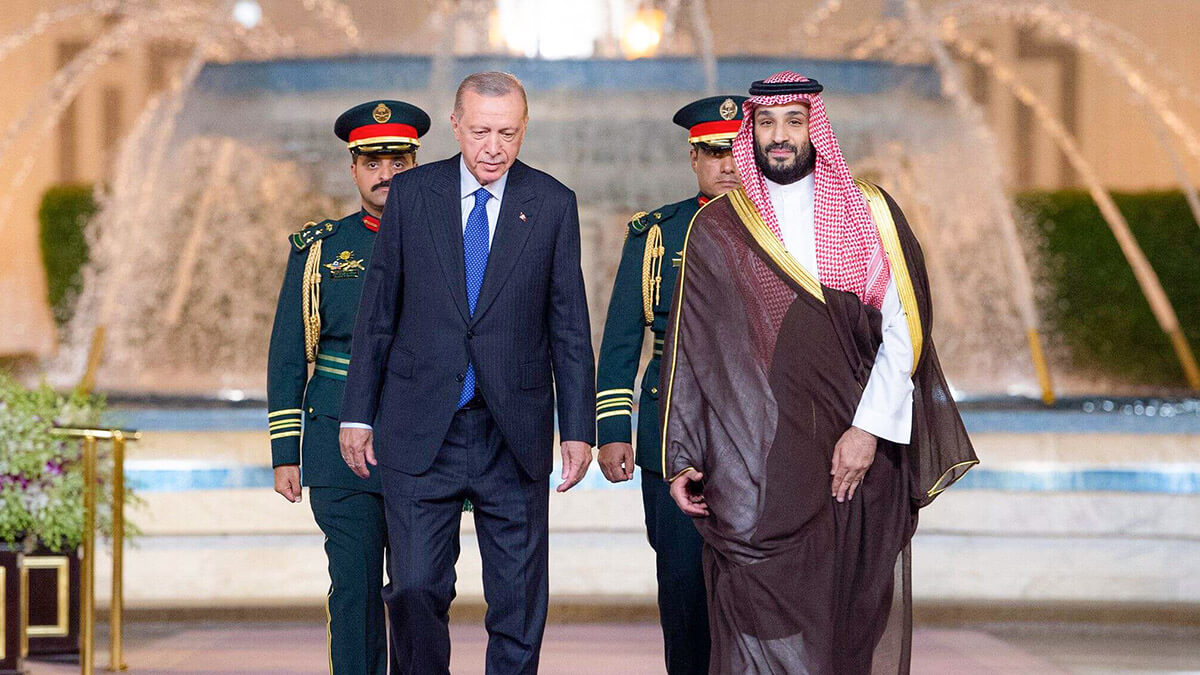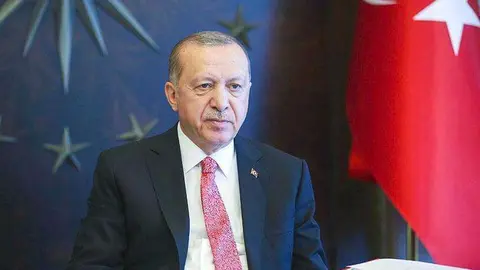Erdogan and Fidan meet with China's new Foreign Minister amid mistrustful atmosphere

China has held its first meeting with a NATO country since the organisation accused Xi Jinping's country of "striving to subvert the rules-based international order, including in the space, cyber and maritime domains", according to the communiqué issued after the Vilnius summit. On this occasion, it was the new Foreign Minister Wang Yi, who recently took over from the late Qin Gang, who travelled to Turkey to meet with his counterpart Hakan Fidan and President Recep Tayyip Erdogan.
The aim of the meeting was to improve bilateral relations between the two countries, according to the Ottoman presidency. Erdogan expressed his country's willingness to hold the first meeting of the High Level Working Group, created to "align China's Belt and Road Initiative with Turkey's Middle Corridor project". The idea of this project is to use the Caspian Sea basin to connect Turkey's eastern border with neighbouring countries.

Among the topics discussed were cooperation in sectors such as nuclear energy, agriculture, civil aviation, culture and tourism. Turkey is in dire need of partners to help it overcome the difficult economic situation it has been experiencing for some time. Hence the president's desire to distance himself from the communiqué issued by the Atlantic Alliance, of which Turkey is a member.
Although Erdogan was already more conciliatory towards Beijing: "At a time when global security risks are increasing, it is natural to advance comprehensive cooperation and political dialogue with our partners in the Asia-Pacific region, both bilaterally and through NATO". He also asserted that 'during the meeting, I particularly emphasised that these ties should be strengthened without targeting a third country', referring to China.
However, observers believe that Erdogan's fine words might not be enough to establish strong relations with China. The reason goes back years, when the president called China's action against the Turkish Uyghur minority in 2009 a genocide. Although relations between Turkey and China gradually improved after these harsh statements, some experts are not confident that these historical rifts are ready to be overcome.
Beijing does not yet see a relationship of full trust. Soner Cagaptay, director of the Turkey Research Program at the Washington Institute for Near East Policy, told Al-Monitor that "what lies at the heart of that problem [lack of trust] is Turkey's deep and historic ties with the Uighur diaspora and, of course, with the Uighurs in China itself".

If one thing is clear, it is that Turkey, beyond historical problems with the Asian giant, is engaged in an exhaustive search for economic partners, something they are not trying to hide either. Recent visits to the Gulf states are further evidence of both Ottoman intentions and the need for urgent revenue. Upon his arrival in Saudi Arabia, Erdogan stated that his Middle East tour was aimed at increasing "joint investment and trade activities with these countries".
He now hopes to add China to this list of countries on which he hopes to rely to alleviate the harsh economic situation in his country. However, the task is not likely to be easy, despite Turkey's efforts to dissociate itself from NATO's confrontation with China.










